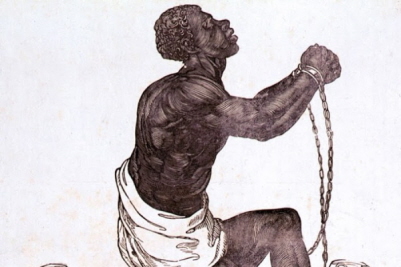
Aberrant Anthropology: Why Americans Adore Abolition
In their days, the Abolitionists were a despised minority. Slaveholders viewed them as radical revolutionaries, and many of their northern neighbors held the same view. Contrary to what we are taught today, the North was hardly a tolerant, color-blind society. (As Alexis de Tocqueville noted in 1835, “Race prejudice seems stronger in those states that have abolished slavery than in those where it still exists, and nowhere is it more intolerant than in those states where slavery was never known.”)
Many if not most of the Abolitionists were insistent that their views came from the Bible. They appealed to it and derived their arguments from it. While they often appealed to ‘natural’ laws and human rights, they based these views on their religious belief that God was the author of such rights.
We come now to an interesting observation. In a post-Christian society, which doubts the Christian basis of morality, the abolitionists are adored. How is it that we honor them more now that we affirm their core beliefs less? Why are we more accepting of their Christian practice when we are less accepting of their Christian theology?
The answer, as I understand it, comes from a false philosophy of the natural condition of humanity. (In other words, we have an aberrant, or misguided, anthropology). Modern society cares nothing for the Biblical arguments about abolitionism. Rather, it loves the idea of being completely free. Slavery, subjection, inequality, and restraint are the cardinal sins of our age.
Jesus directly countered this modern-day philosophy. In a highly tense confrontation with his countrymen, Jesus told them that “you will know the truth, and the truth will set you free.” They retorted, “We are offspring of Abraham and have never been enslaved to anyone.” Jesus quickly explained their true situation: “Truly, truly, I say to you, everyone who practices sin is a slave to sin.” (John 8).
In other words, Jesus taught that it is right to seek freedom. The first freedom we need is freedom from the slavery of sin. Yet we will never attain freedom without God’s truth.
Paul gave similar teaching, arguing that our goal is not to seek for freedom, but rather the proper subjection – subjection to God: “now that you have been set free from sin and have become slaves of God, the fruit you get leads to sanctification and its end, eternal life.” (Romans 6:22).
Our age loves the abolitionists because on the surface, they seem to say what we want to hear – “you should never be enslaved to anyone.” This was not the message of the abolitionists. They believed in the abolition of slavery because they viewed themselves as servants of God. Modern philosophy is not the same as the Biblical message: that we must present ourselves as obedient slaves to God, forsaking the slavery of sin (Romans 6:16).



